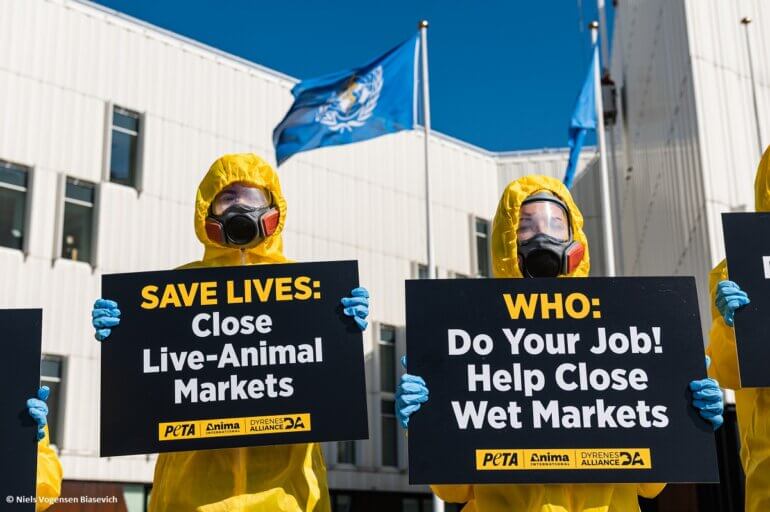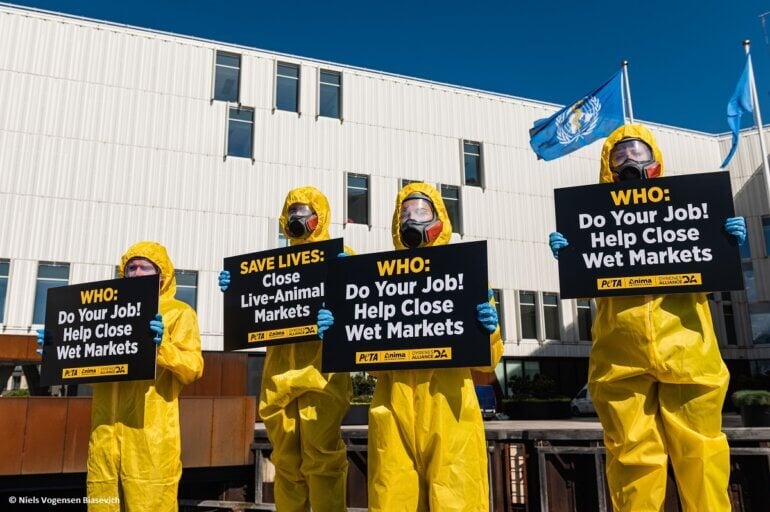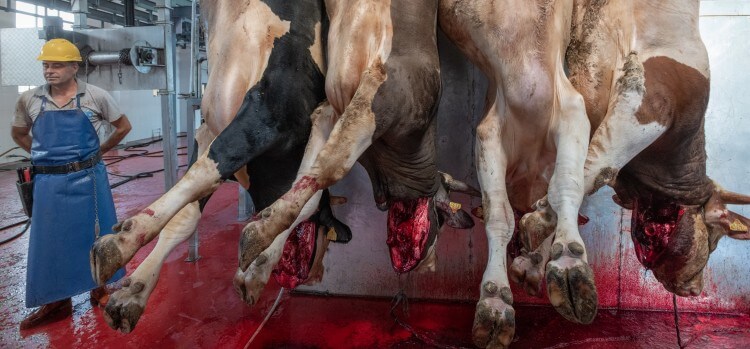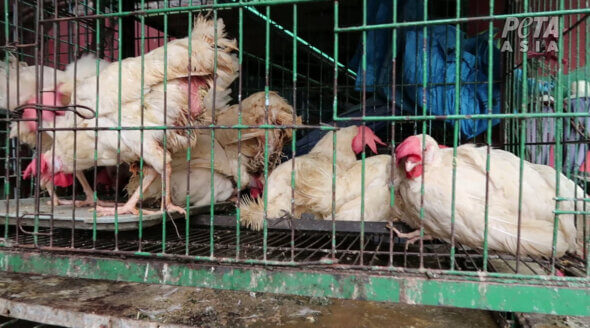PETA Supporters Urge WHO to Help Close Wet Markets
As the coronavirus pandemic continues to sweep the globe, protesters wearing hazmat suits swarmed the office of the World Health Organization (WHO) in Copenhagen, Denmark, today, while observing social-distancing guidelines, to call on the agency to do its job and help close cruel and dangerous live-animal markets worldwide.

The action, a joint effort by animal protection groups PETA, Dyrenes Alliance, and Anima, comes just days after WHO announced that live-animal markets – despite being responsible for the current pandemic and posing a threat of future ones – should not be shut down.
Why Shut Down Wet Markets?
Experts say that the COVID-19 outbreak originated in a “wet market” in Wuhan, China, where humans had direct contact with live animals and dead animal flesh.
The exploitation and slaughter of living, feeling beings has led millions of us to be infected with a dangerous disease – and it’s not the first time something like this has happened.
According to Public Health England, “Many (60 to 80% [of]) emerging infections are derived from an animal source.” Filthy factory farms, abattoirs, and meat markets threaten the health of every human being on the planet by providing a breeding ground for deadly pathogens like the ones behind COVID-19, SARS, bird flu, and more.
Wet Markets Remain Open
After releasing footage taken inside wet markets in Indonesia and Thailand in early April – months after the COVID-19 outbreak began – PETA Asia investigators observed more filth, misery, and death at nearly a dozen other animal markets elsewhere in Asia.
Despite a growing death toll, calls by world leaders for a ban on such markets, and the continued importance of flattening the curve, these markets are still conducting business as usual.
Enough Is Enough
All wet markets are potential breeding grounds for zoonotic diseases, such as COVID-19, SARS, and MERS. At such markets, faeces and other bodily fluids can easily get on the shoes of traders and customers and be tracked into restaurants and homes. The workers who handle the animals often don’t wear gloves and can also spread bacteria. Flies swarm around the bodies of dead pigs and other animals, and the countertops and floors are streaked red with the blood of gutted fish and other slaughtered animals.
PETA Asia has written to health officials in Cambodia, China, Indonesia, the Philippines, Thailand, and Vietnam to call for an end to deadly live-animal markets. Shutting down wet markets in certain countries isn’t enough. To prevent more diseases like COVID-19, all live-animal markets must close.
Join PETA in urging WHO to call for an end to live-animal meat markets:






